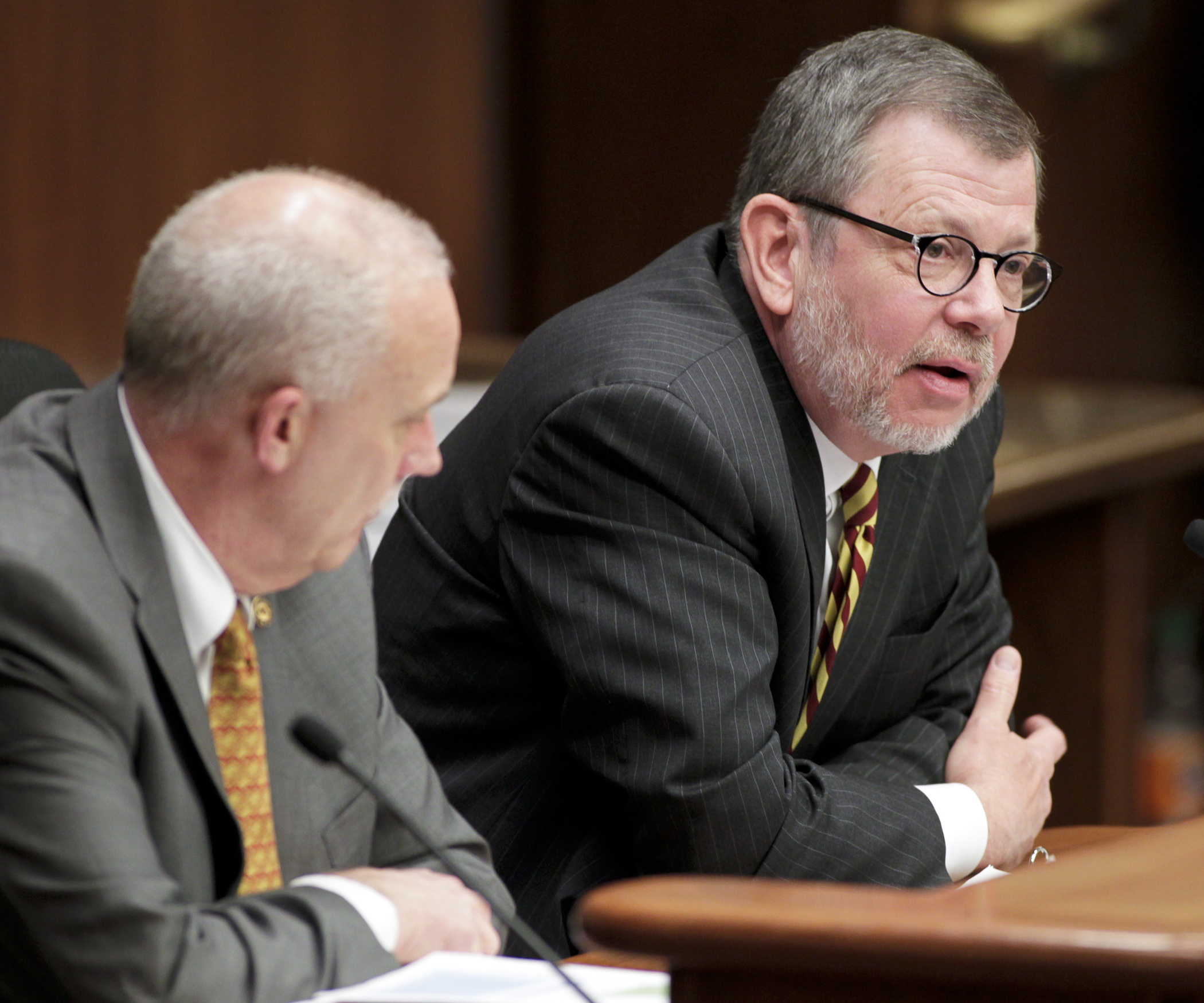Higher ed committee approves omnibus bill ignoring U of M increase request

The House Higher Education Policy and Finance Committee approved an omnibus higher education bill Wednesday that would increase spending by $53.4 million —to $2.95 billion — over the next biennium.
But absent from HF845 are funds that would have covered a tuition freeze for students at public four-year universities, much to the dismay of University of Minnesota President Eric Kaler.
In light of a $1.9 billion budget surplus, “I believe a zero-percent increase is not an acceptable outcome,” Kaler told committee members Wednesday. The bill was referred to the House Ways and Means Committee.
Kaler said that inflationary increases, much needed technology upgrades and the university’s commitment to recruiting and retaining a world-class roster of faculty and staff are major factors in its request for $148 million in increased funding over the next biennium.
About $65 million of that requested increase would be allocated to freezing tuition for students at all five of its campuses through 2017. Instead, under provisions of the bill, undergraduate students at the U of M would see a 3 percent increase in tuition and graduate students can expect a 3.5 percent increase, Kaler said.
While DFLers expressed disappointment in the bill’s failure cover a tuition freeze, several Republican legislators grilled the president about the university’s professed inability to find more funds anywhere else but in the form of tuition increases.
Rep. Bob Barrett (R-Lindstrom) asked Kaler why the university hasn’t considered increasing the price of tuition for non-resident students, which was lowered in recent years in an effort to attract more out-of-state students..
“If we just correct that situation there is millions of dollars available at your disposal,” Barrett said. “Would it cover (the) total amount (needed to offset a tuition freeze)? Probably not. But there is money available.”
Two-year students will see freeze, reduction in tuition
Provisions in HF845 would provide a $105.31 million increase in MnSCU funding, which is short of the system’s request of $142 million increase that Chancellor Steven Rosenstone previously said was necessary to cover inflationary costs for a system-wide tuition freeze.
Those provisions would provide a tuition freeze and 1 percent tuition reduction over the next two years for students attending state two-year colleges. But the appropriations would not cover a full tuition freeze for students attending four-year MnSCU universities.
Provisions in the bill would also reallocate $53 million in an existing surplus in the Office of Higher Education’s state grant program into several other post-secondary grants.
Rep. Ben Lien (DFL-Moorhead) said that such a reduction represents a step backward for the state in its investment in higher education at a time when the Legislature should be taking advantage of a surplus to help students.
“After all the work we did over the last couple years to keep tuition low,we are now pitting the (MnSCu and U of M) systems against each other and taking money from the state grant program,” Lien said.
Committee chair Rep. Bud Nornes (R-Fergus Falls), who sponsors HF845, expressed cautious optimism that the final appropriations will improve as conference committee is formed in the coming weeks.
“As a former chair of this committee who in the past has always had negative targets, to me this is pretty good,” Nornes said. “It’s bound to get better is my hope as we move forward.”
The committee adopted four amendments to the bill, three of which were technical in nature. The fourth amendment brought language into the bill taken from HF1306, sponsored by Rep. Connie Bernardy (DFL-Fridley), which requires MnSCU to establish a policy implementing a transfer curriculum to facilitate the transfer of college credit.
Related Articles
Search Session Daily
Advanced Search OptionsPriority Dailies
Ways and Means Committee OKs proposed $512 million supplemental budget on party-line vote
By Mike Cook Meeting more needs or fiscal irresponsibility is one way to sum up the differences among the two parties on a supplemental spending package a year after a $72 billion state budg...
Meeting more needs or fiscal irresponsibility is one way to sum up the differences among the two parties on a supplemental spending package a year after a $72 billion state budg...
Minnesota’s projected budget surplus balloons to $3.7 billion, but fiscal pressure still looms
By Rob Hubbard Just as Minnesota has experienced a warmer winter than usual, so has the state’s budget outlook warmed over the past few months.
On Thursday, Minnesota Management and Budget...
Just as Minnesota has experienced a warmer winter than usual, so has the state’s budget outlook warmed over the past few months.
On Thursday, Minnesota Management and Budget...
